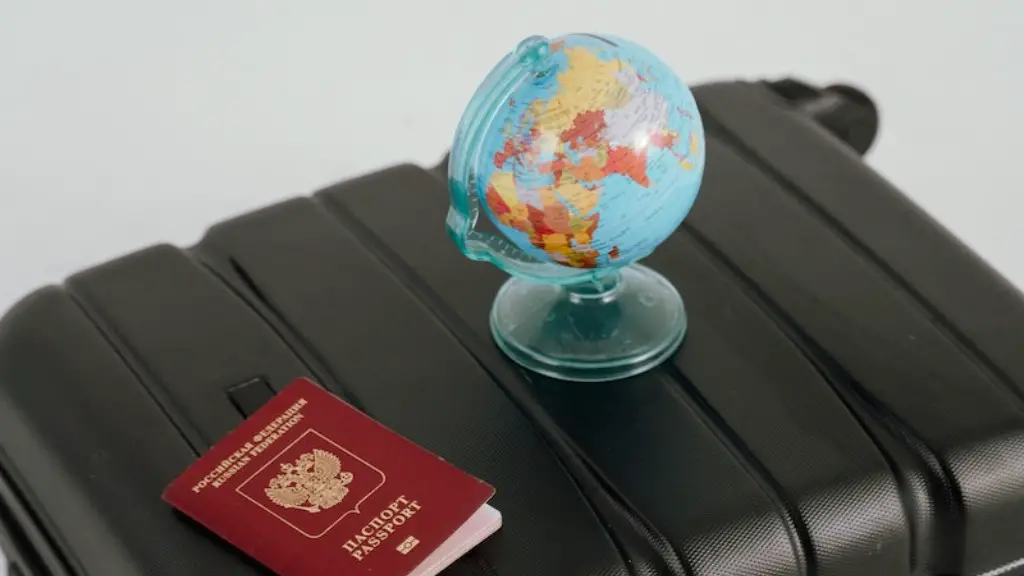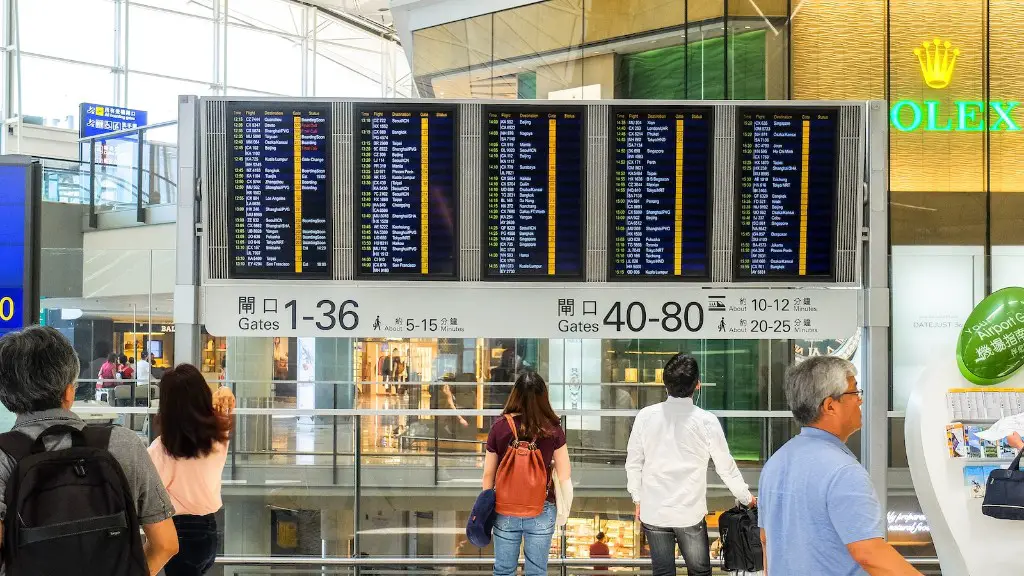Anyone who has ever gone on a trip knows that feeling of anxiety before departure. What if something goes wrong? Will my medical insurance cover me? Do I need travel insurance? For many people, the answer to this last question is “no.” Travel insurance is seen as an unnecessary expense, and something that can be added on at the last minute without any consequences. But is that really the case?
There is no single answer to this question as it depends on the type of travel insurance you are looking to purchase. Some insurance policies must be purchased before you leave on your trip, while others can be bought up to the day of your departure. It is important to check with the specific insurer you are interested in to find out their deadline for purchasing travel insurance.
Is there a time limit to buy travel insurance?
If you’re planning a trip and a storm is forecasted, it’s not too late to purchase travel insurance. However, your plan may not cover you for potential losses caused by the storm. Travel insurance is designed to offer protection against sudden or unforeseen situations and events, not events that are expected or forecasted.
If you’re wondering whether it’s too late to buy travel insurance after you’ve already booked your trip, the short answer is: it’s not! You can still purchase insurance, however, it’s always best to do so as early in the process as possible. If you wait until the last minute, you may miss out on certain benefits.
When should travel insurance start
Travel insurance is a good idea if you have booked a trip and are worried about having to cancel due to an injury or illness. It is also good if you are worried about losing money if your trip is cancelled.
You can purchase travel insurance once you have booked your flight. In fact, you should wait to buy travel insurance until you book your flight and know the ticket price. This will ensure that you are covered in the event that you need to cancel your trip.
Does travel insurance get more expensive closer to departure date?
Unlike other aspects of your travel experience like airfares or hotel-room rates, the price of travel insurance doesn’t increase the closer you get to your travel date. There’s no financial penalty if you wait to buy travel insurance (except for those bonus coverages, of course).
It is advisable to purchase travel insurance as soon as you book your trip or holiday. This is because if you have to cancel your trip, you may be able to recover some of the costs through your travel insurance. For instance, if your travel insurance includes trip cancellation benefits, you may be able to receive a refund for non-refundable expenses.
Do I need to buy travel insurance before flight?
If you’re going overseas, travel insurance is as important as a passport. Without it, you or your family could suffer financially if things go wrong. No matter who you are, where you’re going and what you’re doing, get insurance. Some international travel insurance policy providers may cover COVID-19-related claims.
Travel insurance is a must-have for any travelers. It can cover you in case of trip cancellation, medical emergencies, lost baggage, and more. There are many different types of travel insurance, so be sure to read the fine print and choose the one that best suits your needs.
Is it cheaper to buy travel insurance separately
There are a few things to consider when deciding whether a single or annual policy is more expensive. The first is how often you travel. If you take more than one holiday a year, an annual policy will likely be cheaper per trip. The second is the length of your trips. If you take longer trips, a single policy may be cheaper as it will cover you for a longer period of time. The third is the type of policy you choose. Some annual policies cover multiple people, so if you are travelling with family or friends, this could be a more cost-effective option.
Delays are a part of travel, but they can be frustrating. A comprehensive travel insurance plan can help cover the costs of delayed flights, giving you one less thing to worry about on your trip.
What is an example of when travel insurance would not be necessary?
If you have made any nonrefundable reservations for your trip, it is important to make sure you are protected in case of cancellation. A comprehensive travel insurance plan will cover your nonrefundable reservations, which can include prepaid excursions in addition to airplane tickets and hotel stays. If your trip does not involve any nonrefundable reservations, you may not need travel insurance.
If you cancel a flight within 24 hours of booking, the airline is required by the US Department of Transportation to refund your money. However, if the airline offers a free 24-hour hold option when shopping for tickets, you will not be refunded.
Does travel insurance cover last minute cancellation
It’s always a good idea to have travel insurance, just in case something comes up that prevents you from being able to take your trip. However, it’s important to note that travel insurance may not always provide the coverage you need. For example, if you get sick or a hurricane pops up and you haven’t yet bought travel insurance, you won’t be covered if you have to cancel your trip.
The premium for travel insurance is typically between 5% – 10% of the value of your travel expenses. So, for example, if your non-refundable travel expenses total $5,000, your premium would be between $250 and $500.
What is the best travel insurance to go with?
Travel insurance is an important part of any trip, as it can help protect you from unexpected costs if something goes wrong. There are many different travel insurance companies out there, so it’s important to compare options and find the best one for your needs.
Here are some of the best travel insurance companies of 2023:
Travelex: Best Overall
Allianz Travel Insurance: Runner-Up, Best Overall
InsureMyTrip: Best Value
World Nomads: Most Comprehensive Coverage
HTH Travel Insurance: Best for Seniors
Nationwide: Best for Cruises
GeoBlue: Best for Medical Coverage
When purchasing travel insurance, it is important to get the duration of the policy right. All destinations should be covered, and you should check to see if there are any exclusions for pre-existing medical conditions. If there is an element of danger involved in your trip, you may need to purchase additional coverage. Be sure to check the policy limit on belongings, and report any type of theft immediately.
Does trip insurance cover COVID
Dear Sir/Madam,
Thank you for your inquiry.
Trip Cancellation coverage will reimburse your expenses if you contract an illness that prevents travel. However, there is usually an exclusion for “foreseeable” events.
If you cancel your trip due to coronavirus, or you are quarantined because of coronavirus, your expenses may not be covered.
Thank you for your understanding.
Travel insurance is an important consideration for any trip, as it can help cover the costs of unexpected delays, cancellations, and other unforeseen events. The average cost of travel insurance is 5% to 6% of your trip costs, according to Forbes Advisor’s analysis of travel insurance rates. For a $5,000 trip, the average travel insurance cost is $228, and the range of rates is from $154 for a basic policy up to $437 for a policy with generous coverage. Be sure to compare policies and coverage levels to find the best policy for your needs and budget.
Final Words
There is no definitive answer to this question as it depends on the insurance company and the policy. Some companies may allow you to add travel insurance up to the day of your trip, while others may have a deadline of a few days prior.
The most important thing to remember when considering travel insurance is to check with the insurer to see if your policy covers you for the entire length of your trip. Some policies have a set start date, while others will cover you from the date you purchase the policy.





